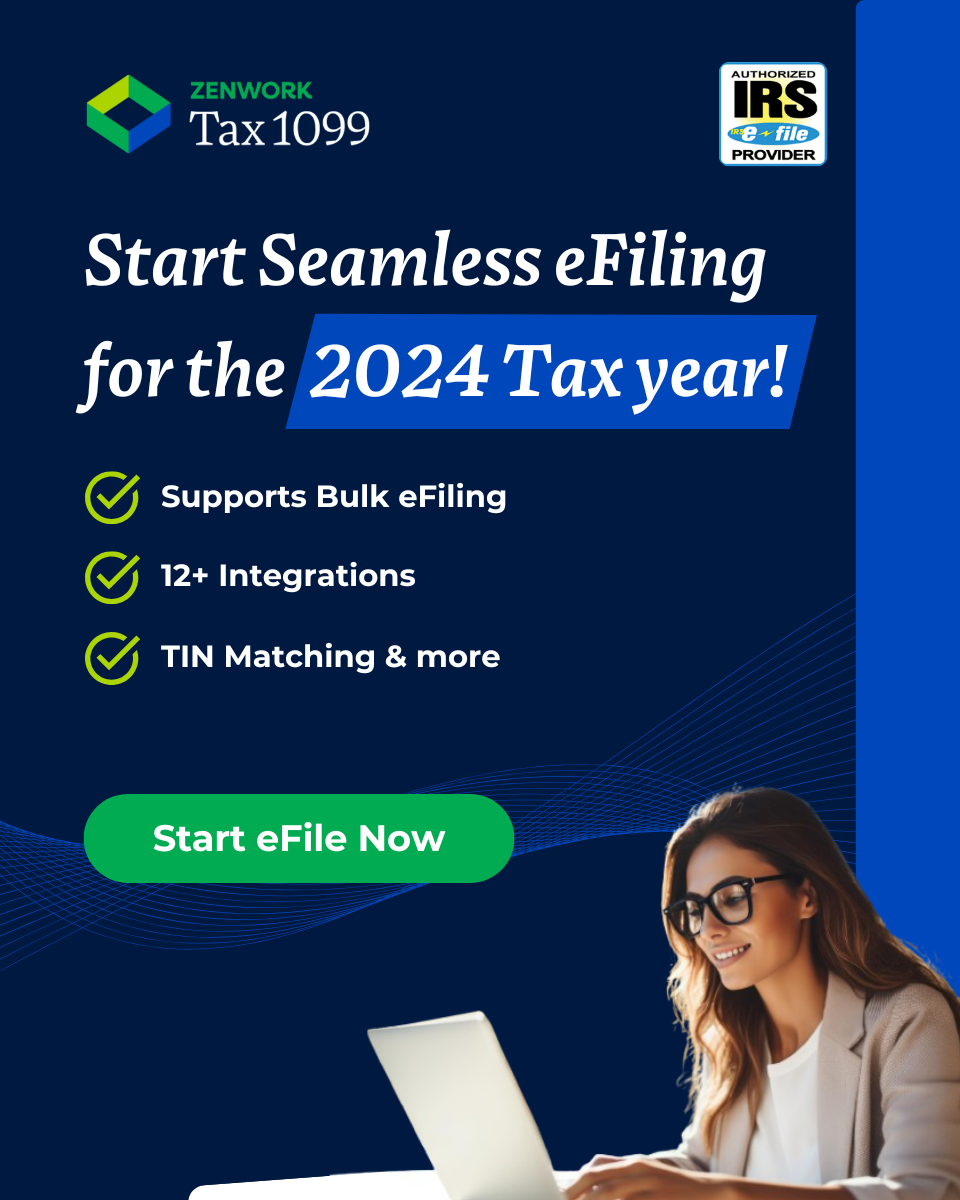The paper filing threshold will be reduced as more tax years unfold. Learn what it could mean for your business and how it’s affecting businesses like yours.
Are you a small business, large-scale enterprise, or perhaps a medium-scale business? No matter the size of your business, you are required to file the information returns with the IRS. Thousands of businesses in the country relied on eFiling solutions, such as the ones found online with Tax1099.
With the latest leads received from the IRS, it looks like the federal agency has proposed some new changes to further reduce the paper file threshold and encourage eFile processing for a variety of information return series.
Let’s learn about this in detail.
What’s The New Update?
The IRS recently reviewed the comments on the proposed regulations to reduce the threshold requirements for 1099 forms and is yet to decide on the changes. The regulations, if approved, will drastically change the way businesses approach e-filing and paper filing.
What exactly would change for your business?
Threshold Changes For Paper Filers: 1099 Forms & More
If enforced, the new regulations require businesses to restrict their paper files by a total of 100 information returns, regardless of the individual form type volumes.
Per the current paper file, non-aggregate rule, if a filer has 200 1099-NEC forms and 350 1098 forms to file, the filer can paper file the 200 1099-NEC forms and eFile 350 1098-forms respectively.
Under the new proposed regulations, if a filer has 50 1099-NEC forms, 30 1099-MISC forms, 20 1099-INT, and 30 1099-DIV forms to file, the filer has to choose the e-filing methods for all forms as the total number of forms exceeds the aggregated figure for of 100 forms for paper file.
The threshold is likely to narrow further down to just 10 forms for each form type, drastically changing the calamity of paper filing for businesses with each tax year.
The Rise Of eFile: 1099 & Other Information Returns
The IRS proposes these regulations per the provision in the Taxpayer First Act of 2019, enacted July 1, 2019. This provision requires the IRS to improve the taxpayer service, modernize its technology, and enhance its cyber security to prevent identity theft.
It can be understood that the federal agencies are encouraging filers to choose electronic methods due to the cost-effectiveness, virtual accessibility, and simplified approaches. Keeping in mind the public safety amid the virus outbreak concerns, this method is probably the safest and the fastest way to file information returns without having to step outside.
Filers, Choose Your Filing Methods Carefully
The threshold for paper filing is not the only concern with the new update. If approved, filers would be asked to file the corrected forms in the same method by which they initially filed the original forms.
For example, if you have filed your 1099-NEC forms by paper and later wanted to file the corrected forms, the proposed regulations would then guide the taxpayer to file the corrected forms by the paper filing method. The same goes for the e-filing method. If you have initially filed your 1099 forms electronically, then you also have to submit any corrected forms electronically.
This means that taxpayers cannot switch and play the filing methods and have to stick to a filing method for a tax year. It looks like the IRS wants the taxpayers to choose electronic filing as the primary method of filing.
1099 Paper Filing Restrictions: Penalties & Exceptions
It is essential for businesses to understand that not following the filing guidelines could bring in assessments from the IRS.
For example, if you’re required to file electronically but choose to file by paper, the IRS may execute assessments and penalties for every information return filed through the incorrect filing method.
Currently, the penalty for filing an information return through a method other than the one prescribed and institutionalized by the IRS would be $280 per return.
Yes, the penalty may not seem very big but if you consider the volume of form types that businesses file on average, the total sum would be huge.
For example, your business must file 300 1099-NEC forms electronically as the total volume of forms exceeds the paper filing requisite. But you choose to file the 300 1099-NEC forms by paper. The IRS will penalize your business with $280 for all 300 returns filed through the incorrect method.
Now, the total penalty to pay would be 300 forms x $280 (penalty per form) = $84,000
If implemented, the stringent regulations will change the way businesses approach tax compliance altogether, allowing businesses to choose digital tax compliance solutions, such as Tax1099 to file their information returns in the required quantities.
However, there is also some hope for businesses that need the exception. The possibility of undue hardship is considered to waiver off the burden for businesses. The primary point of such consideration is the total cost of filing electronically. If the cost of e-filing is higher than the cost of paper filing, the business is exempted from the requirement.
If an employer is closing a business and needs to file Form W-2, 499R-2/W-2PR, W-2VI, W-2GU, or W-2AS forms before the release of the e-file specifications, then such a scenario is also considered a hardship.
Get Ready For The Possible Threshold Updates With Tax1099
Tax1099, an authorized agent of the IRS, is loved and trusted by 100,000+ businesses across the country. Small businesses, mid-size firms, and enterprises choose our digital tax compliance solutions for faster and accurate compliance experiences.
Accelerated e-filing means businesses have to organize their vendor onboarding operations much more stringently in order to avoid non-compliance issues and address technical aspects of e-filing, such as data imports, form population, and reviews, and more.
Tax1099 enables businesses like yours to sort out their independent contractor tax compliance right from the get-go with Bulk W-9 eSolicitation, TIN Matching, and Address Validation solutions.
Tax1099 further allows users to leverage 12+ sleek integrations to import tax-sensitized data to our end-to-end encrypted platform within seconds. Our dynamic data processors will read and populate the forms appropriately to ensure that the electronic returns are filled with the right information.
Our smart tax calculator will dynamically calculate the tax as you furnish the form with the necessary inputs, giving you an estimate of the total tax due to the IRS.
You can further schedule your completed forms for a specific date with Tax1099’s eSchedule or have our team schedule the e-files for at least two weeks prior to the IRS due date, preventing late filing penalties and the last-minute rush.
Do not wait until the last minute for the proposed regulations to be implemented. Plan your tax compliance operations right away by talking to the experts at Tax1099.
Act now.
Schedule A Demo (Or) Sign Up Now


